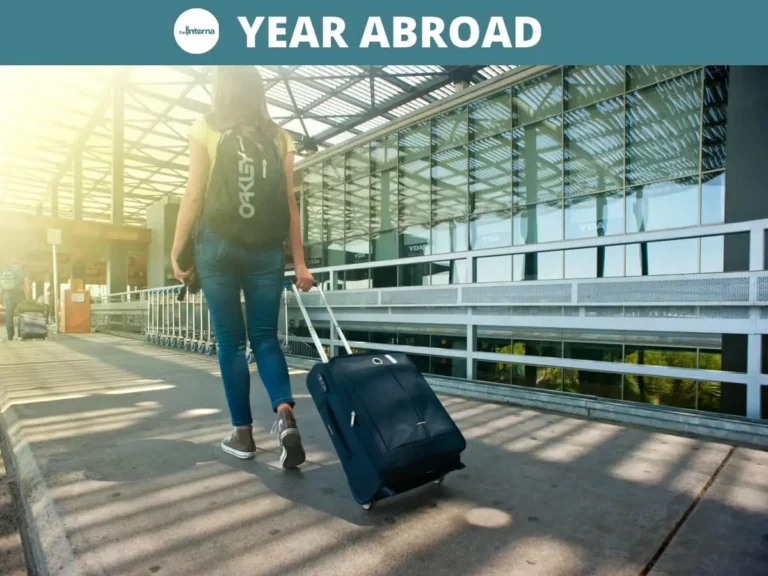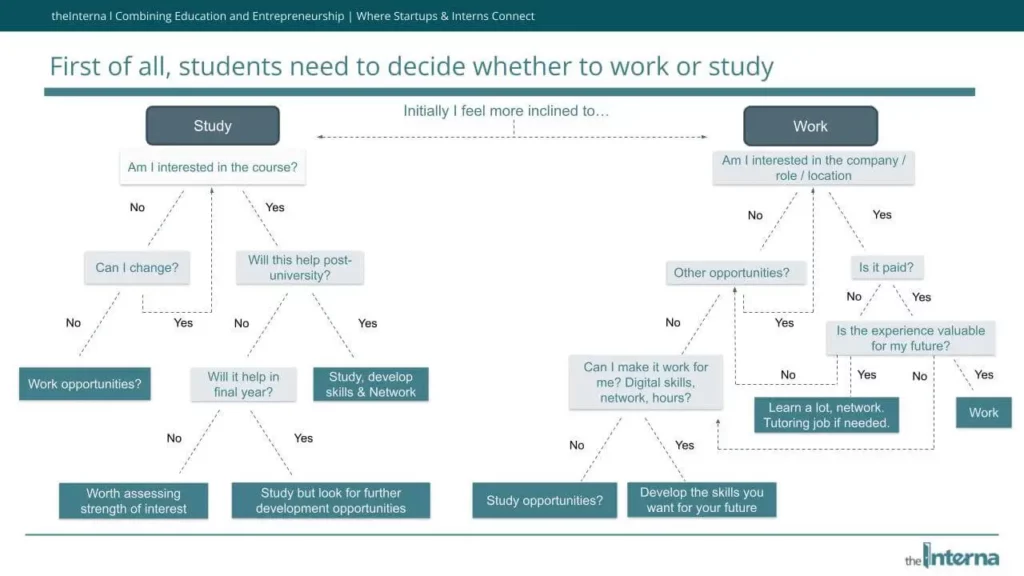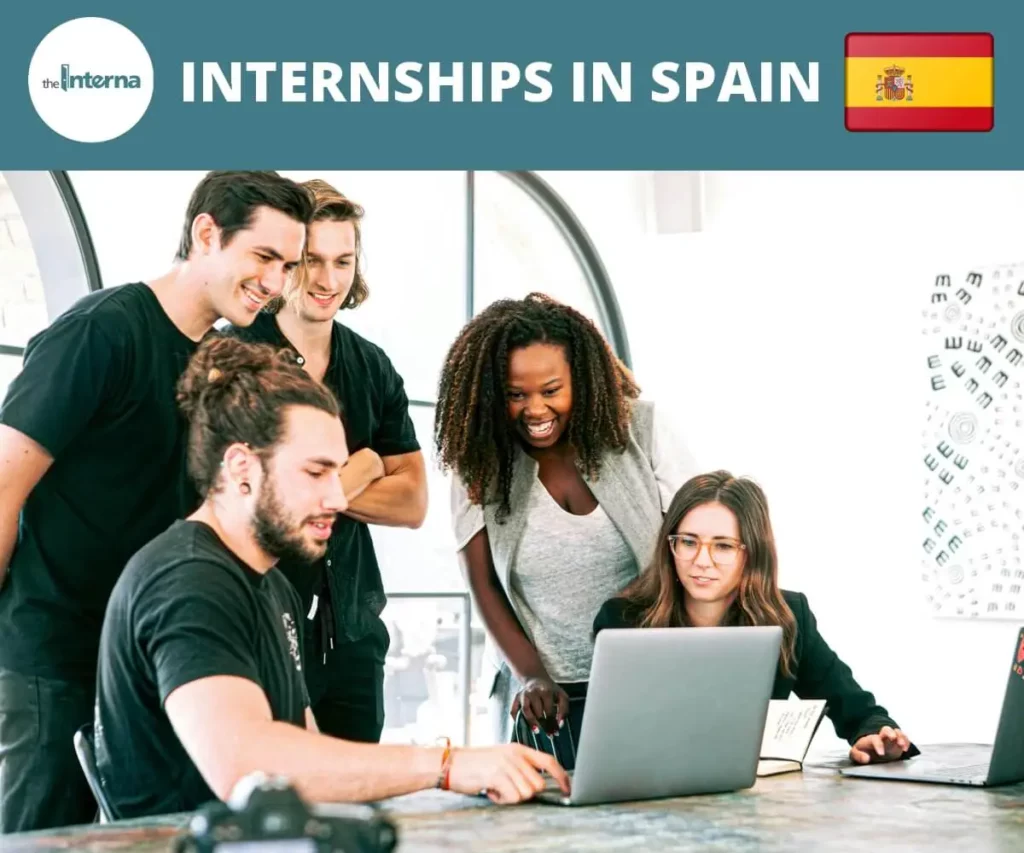What is a Year Abroad?
A year abroad is a transformative experience living, studying or working in a different country for an extended period, usually one academic year.
Spending a year abroad can broaden your horizons, enhance your career prospects, and create lifelong memories.
Should I Study or Work a Year Abroad?
Choosing between studying and working a year abroad depends on your goals and future aspirations. Here are some key considerations:
- Year Abroad Study: Ideal if you want to deepen your academic knowledge, improve language skills, and experience cultural immersion in a structured university setting. This path is perfect for those aiming to enhance their qualifications while growing personally.
- Year Abroad Work (Placement): Best for building professional experience, developing industry-specific skills, and expanding your global network. It’s a great choice for those focused on career development and gaining a competitive edge in the job market.
Think about your priorities—whether they are academic achievements or career advancements—to make the right choice for your year abroad.
What are the Benefits of Doing a Year Abroad?
A year abroad offers incredible personal and professional growth. Here’s why it’s worth considering:
- International experience: Live and work in a different culture—stand out to global employers.
- Language improvement: Boost your language skills through daily practice.
- Global network: Build lasting connections and discover new opportunities.
- Skill development: Learn adaptability, independence, and cross-cultural communication.
- Career boost: International experience and language skills enhance your employability.
Spending a year abroad is more than just travel—it’s a career and life accelerator.
Studying a Year Abroad
What Is It Like to Study a Year Abroad?
Studying a year abroad means immersing yourself in a new academic system and experiencing life in a different culture. You’ll build new friendships with people from diverse backgrounds, collaborate with international classmates, and gain unique perspectives on global issues.
It’s a chance to embrace a new language, step out of your comfort zone, and develop skills like adaptability and independence. Beyond academics, a year abroad offers personal growth and meaningful connections that create a lasting global network.
Why Choose to Study on your Year Abroad?
- Gain Academic Perspective: Study diverse curricula and teaching styles at world-class institutions.
- Enhance Language Skills: Immerse yourself in a new language and improve fluency through daily use.
- Cultural Immersion: Experience life in a different country and broaden your global understanding.
- Career Advancement: Stand out with international academic experience on your CV.
- Personal Growth: Build independence, adaptability, and confidence while exploring new environments.
- Global Networking: Connect with peers from around the world and create lasting relationships.
- Life-Enriching Experience: Discover new traditions, cuisines, and lifestyles to enrich your life story.

How to Plan and Prepare for Studying on your Year Abroad
Planning to study abroad helps to ensure a smooth experience:
- Understand University Connections: Identify which universities your home university partners with. This helps you explore destinations and secure the location you want.
- Set Clear Goals: Decide what you want to achieve academically and personally.
- Research Destinations: Compare programs, costs, and living conditions.
- Organize Finances: Budget for tuition fees (if applicable), accommodation, and daily expenses; apply for grants such as the Erasmus+ Programme or the Turing Scheme.
- Secure Housing: Choose between student dorms, shared apartments, or homestays.
- Learn Local Basics: Study the language, transport systems, and cultural norms.
- Prepare Documents: Ensure your passport, VISA, and insurance are in order.
- Plan Arrival Details: Know how to reach your accommodation and settle in.
Year Abroad Placements
What Is a Year Abroad Placement?
Year abroad placement refers to opportunities for students and professionals to gain valuable experience through internships, placements, or teaching roles in a foreign country.
This unique experience combines professional growth with cultural immersion, allowing individuals to build a global network, develop key skills, and enhance their career prospects.
Whether you’re working in a startup in Europe, Asia or the US, year abroad work helps you stand out in the job market while offering the chance to explore a new culture and embrace a different way of life.
Why Choose a Year Abroad Placement?
- Earn Money While Gaining Experience: Many placements are paid, allowing you to earn money to support your living expenses and gain financial independence during your year abroad.
- Career Development: Gain practical experience in your field while working with international teams.
- Cultural Insights: Learn how businesses operate in different parts of the world.
- Networking Opportunities: Connect with global professionals and mentors.
- Skill Building: Develop soft skills like communication, adaptability, and problem-solving.
- Travel and Adventure: Explore new destinations during your free time.
How to Plan for a Year Abroad Placement
- Identify Your Career Goals: Decide what type of experience will benefit your professional development.
- Research Placements: Look for roles or industries aligned with your career aspirations.
- Tailor Your Application: Create a CV and cover letter that highlight relevant skills and experience.
- Understand Visa Requirements: Ensure you meet the legal criteria for working abroad and apply early.
- Plan Finances: Account for travel, accommodation, and living expenses, and explore paid placement opportunities or financial aid like Turing Scheme or Erasmus+ Programme.
Popular Year Abroad Subjects for 2025
- Modern Languages: Perfect for immersing yourself in a new culture while gaining fluency in French, Spanish, Mandarin, or German.
- International Business: Offers practical insights into global markets and prepares students for careers in trade, marketing, and management.
- Marketing: Focuses on consumer behavior, branding strategies, and digital campaigns.
- International Relations: Examine diplomacy, conflict resolution, and global cooperation.
- Economics: Study the global economy and its dynamics, often paired with a foreign language for added versatility.
- Degrees with Embedded Placements: Gain real-world experience through programs that integrate work placements into academic study.
These subjects, offered at top universities in the UK and Ireland, combine academic depth with opportunities for real-world global insights.
Year Abroad Costs: Monthly Expenses Explained
- Accommodation: €400–€1,200/month (£350–£1,050), depending on location and type (shared rooms, single rooms, private apartments).
- Food: €150–€300/month (£130–£260) for groceries and dining out.
- Transport: €20–€100/month (£17–£87) for public transport passes in most cities.
- Miscellaneous Costs: €100–€300/month (£87–£260) for entertainment, leisure, personal expenses, and other activities.
Examples of Monthly Year Abroad Costs in Europe:
- Portugal: €800–€1,200/month (£700–£1,050).
- Germany: €800–€1,500/month (£700–£1,300).
- France: €800–€1,800/month (£700–£1,570).
- Spain: €700–€1,400/month (£610–£1,220).
- Italy: €700–€1,500/month (£610–£1,300).
Examples of Monthly Year Abroad Costs Outside Europe:
- USA: $1,200–$2,500/month depending on state and city.
- Japan: ¥100,000–¥150,000/month (€700–€1,100).
- Australia: AUD 1,200–1,800/month (€750–€1,100).
- Canada: CAD 1,200–1,800/month (€800–€1,200).
- India: ₹30,000–₹50,000/month (€350–€600).

Tuition Fees for Studying a Year Abroad
Tuition fees vary widely across Europe. Some countries, like Germany and Norway, offer free tuition for EU students, while others charge up to €9,000 per year. Scholarships and government funding programs can significantly reduce costs. Check your chosen program and destination for specific details
Tips to Budget for Your Year Abroad
- Estimate Tuition Costs: Research program fees for your destination. These can vary widely depending on the country and type of program.
- Calculate Living Expenses: Budget for housing, food, transport, and utilities. Costs depend on the city—big capitals will generally cost more than smaller towns.
- Include Travel and Insurance: Account for flights, visas, and health insurance, which can add significantly to your total costs.
- Seek Financial Support: Explore scholarships, grants, or financial aid options. Check if part-time work is allowed to supplement your income.
- Plan for Emergencies: Save for unexpected expenses, such as medical needs or last-minute travel.
- Track Your Spending: Use apps or spreadsheets to monitor expenses and stay within your budget.
A well-prepared budget ensures you can focus on enjoying your year abroad without financial stress.
How to Access Financial Support (Erasmus+ Grant and Turing Scheme)
The Erasmus+ Programme and the Turing Scheme provide invaluable financial support for students planning a year abroad.
These grants help cover essential costs such as travel, accommodation, and daily living expenses. Erasmus+ focuses on academic exchanges within Europe, while the Turing Scheme offers opportunities worldwide, including placements and internships.
For more details, visit the official Erasmus+ page or learn about the Turing Scheme on theInterna’s Turing Scheme guide.
Real Year Abroad Experiences from theInterna
- A student from University College Dublin worked the tech side of a startup in Barcelona and redesigned the workflow on the website leading to a 25% increase in total conversions to leads booking calls.
- A student from Durham University interned in a business in Paris in the Sales & Business Development function. Within 6 months, they brought in >€55k of revenue for the business (>50% of the total sales of the company). This was his first job…
By interning at a partner startup of theInterna you will be sure to get real business exposure and give you the right grounds to be able to excel when there.















Frequently Asked Questions about Year Abroad
Can I Study Abroad for Free?
It’s possible in some cases. Scholarships, grants, and government-funded exchange programs can cover most or all of the costs, but availability depends on your eligibility and chosen destination.
What Are the Requirements for a Year Abroad?
Requirements differ depending on whether you plan to study or work abroad.
- Studying a year abroad: you’ll typically need a strong academic record, language proficiency for the destination country (if applicable), and a valid passport. Many programs may also ask for personal statements, recommendation letters, or proof of financial readiness.
- Placements or internships abroad: requirements often focus on professional skills and experience. You may need to provide an updated CV, a cover letter tailored to the role, and sometimes references from previous employers or professors. Language proficiency and visa eligibility are also crucial for securing a position.
Be sure to research specific requirements for your chosen program or placement.
How do I choose the best country for my year abroad?
Consider your goals—language learning, career opportunities, culture, safety, cost of living, and visa requirements. Research destinations that align with your priorities.
What types of year-abroad programs are available?
Options include university exchange programs, internships, volunteering, work placements, and independent travel. Some focus on academics, while others offer professional or cultural experiences.
Can I work while studying abroad?
It depends on your visa and host country’s rules. Many student visas allow part-time work, but restrictions may apply. Research local labor laws before making plans.
How do I find accommodation for my year abroad?
Options include university dorms, private rentals, homestays, and shared housing. Universities and program coordinators often provide housing assistance. Research platforms like Facebook groups, student forums, and rental websites.
What should I pack for my year abroad?
Pack based on climate, cultural norms, and your program requirements. Essentials include important documents, electronics, medication, and season-appropriate clothing. Avoid overpacking—buy items locally if needed.
What are the biggest challenges of a year abroad?
Common challenges include language barriers, loneliness, cultural differences, academic or work stress, and financial concerns. Preparation and adaptability help overcome these difficulties.
How can I make the most of my year abroad?
- Stay Open-Minded: Embrace the culture and new ways of working or learning.
- Network Actively: Build relationships with peers, professors, or colleagues.
- Document Your Journey: Keep a journal or blog to reflect on your experiences.
- Plan Side Trips: Explore nearby cities or countries during your free time.
- Stay Organized: Use tools to track your progress, expenses, and plans.
Start Your Year Abroad Journey
Ready to explore the world and gain life-changing experiences? Discover programs, destinations, and opportunities tailored to your goals.
Start your journey today at theinterna.com.
Links Related to Year Abroad
- Pre-Internship Training Course
- What is the Turing Scheme and how does it work?
- Can I work during my Erasmus year?
- How to decide whether to study a new subject on your Erasmus year
- A Guide to Making the Most of Your Erasmus Experience
- 5 Tips for Building a Strong Personal Brand During Your Internship
- Spain Study Visa
- Interning at a Startup
- Laws on Internships





